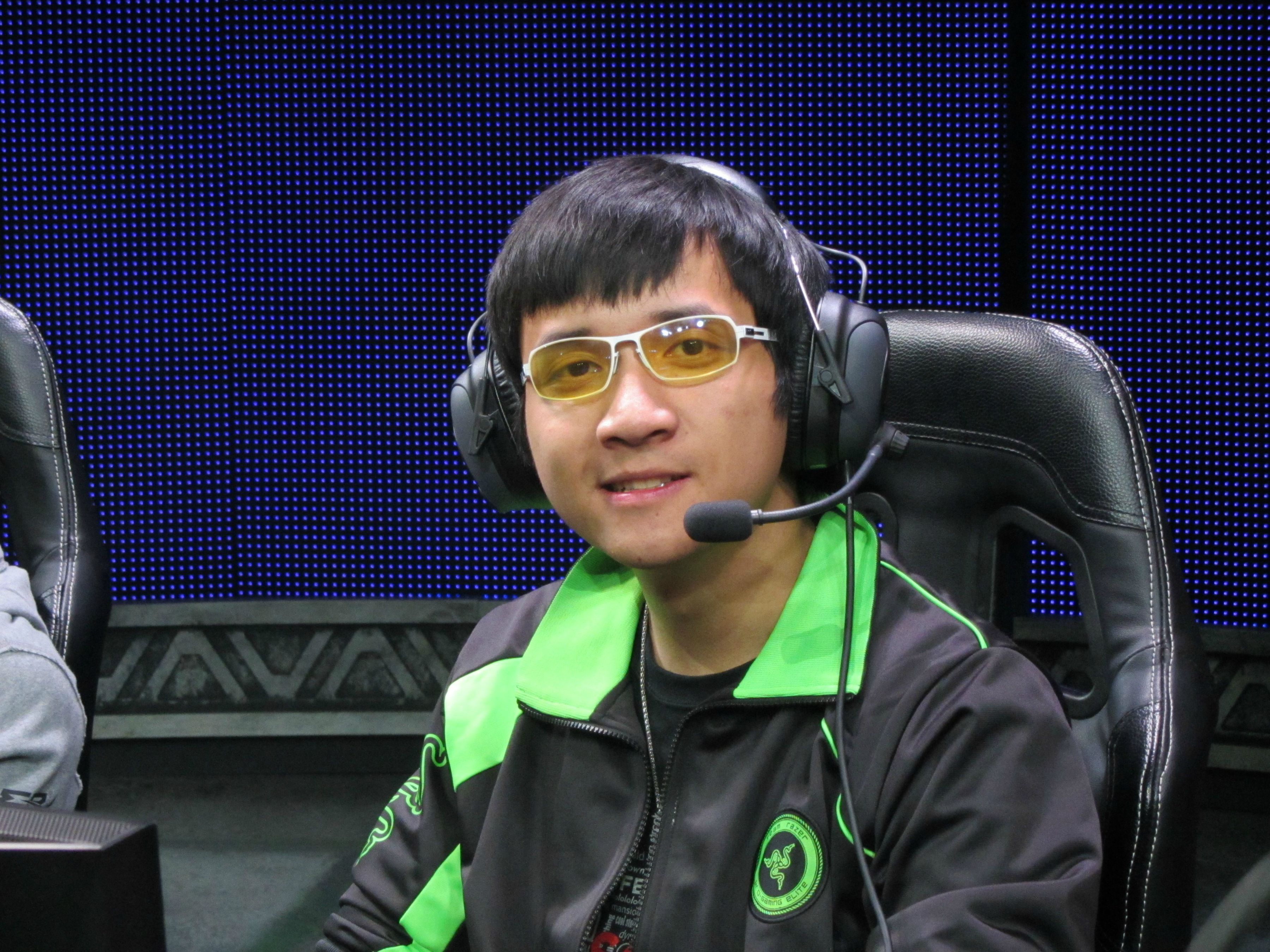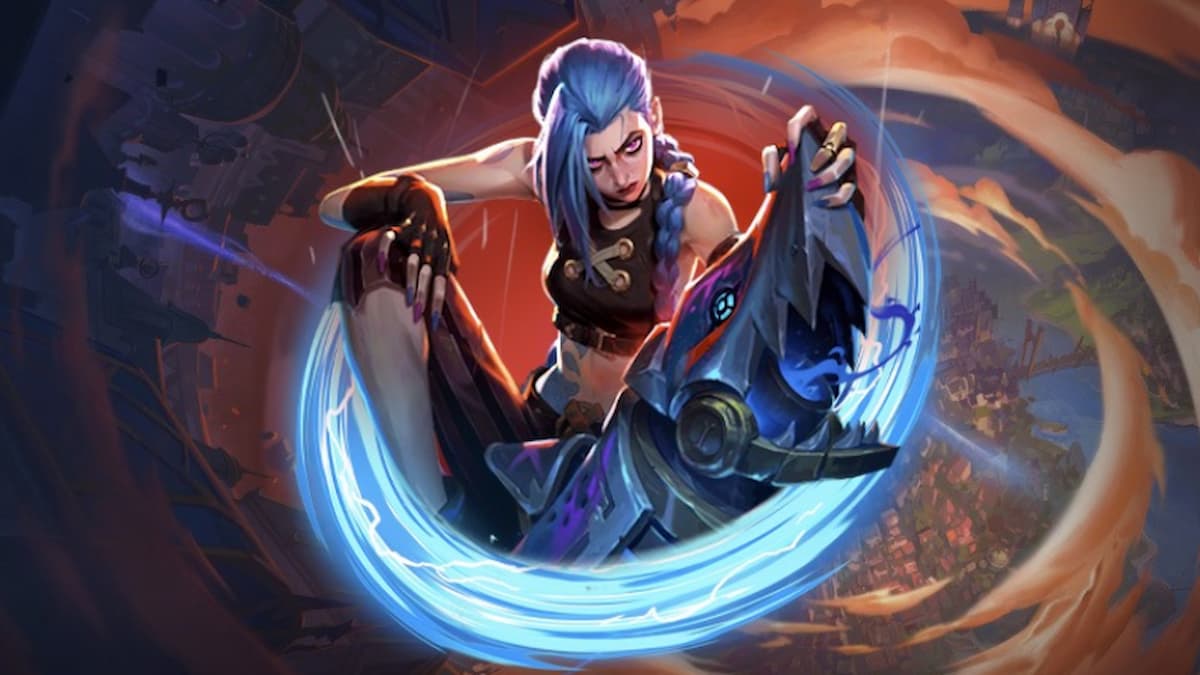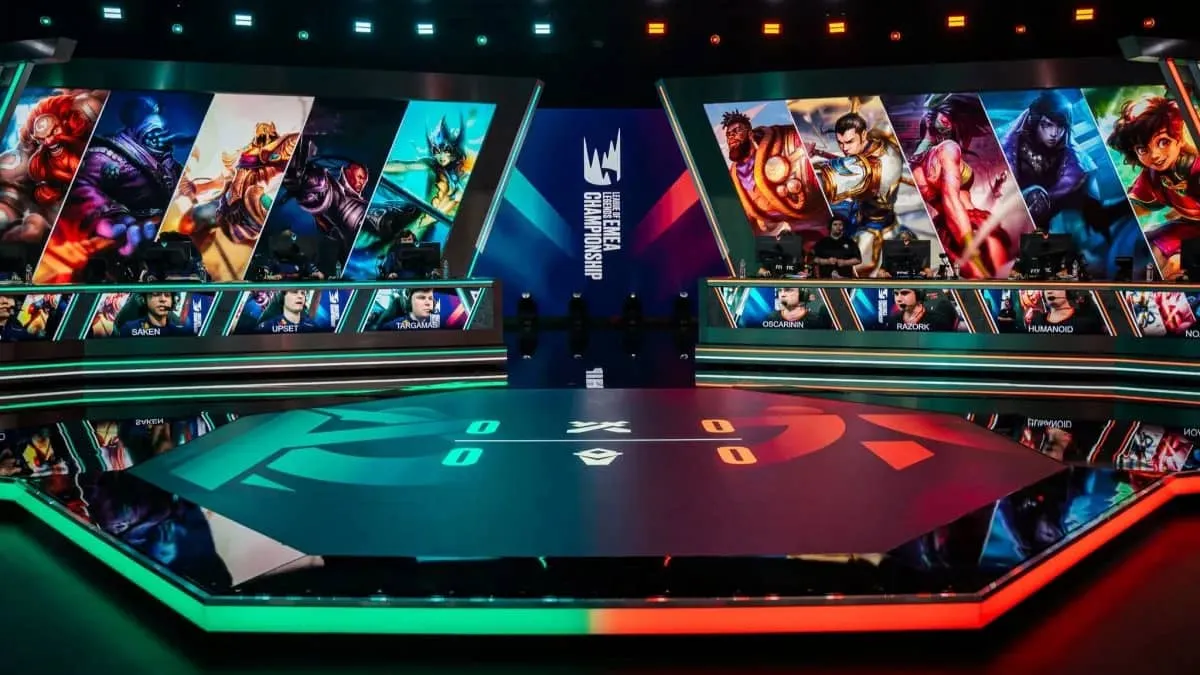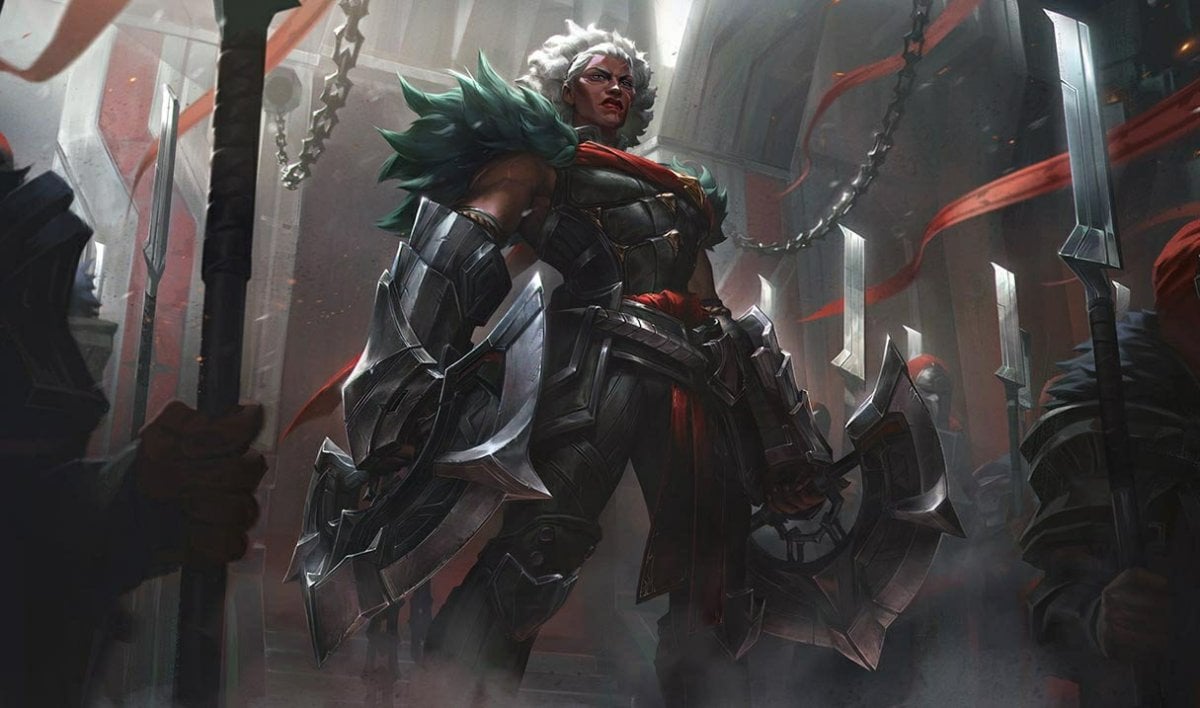
“the prisoners, if they were able, would therefore reach out and kill any who attempted to drag them out of the cave (517a).”
–Plato’s Allegory of the Cave, Wikipedia synopsis
When Shan ‘Chaox‘ Huang announced his retirement from competitive League of Legends in a vlog released on June 21st, 2013, the veteran North American champion was not greeted with a hero’s farewell, instead there was community backlash against some of his reasons given and ridicule from both fans and fellow professional players. Having spent time with Chaox in person while he was in the process of making his decision to retire, when he was staying in Seoul, South Korea, to attend the OGN Champions Spring final, I was surprised by how poorly received his remarks were.
As someone familiar with a number of the different international scenes, both from time spent in other games and knowing insiders in each of the major LoL regions, a lot of Chaox’s points held real weight and should have been food for thought for Western pros and fans. Instead, the baby was thrown out with the bathwater and the West largely reconciled Chaox’s comments as being bitter parting shots from someone who couldn’t get into another top team and was giving up. Now, almost a year and a half later, I think it’s worth revisiting Chaox’s reasons for retiring and seeing how prescient some of his perspective was on how the League of Legends scene in the West would develop.
Nowhere better to go
The context of Chaox’s retirement came after having been removed from Team SoloMid (TSM) on March 25th, following Week six of the LCS Spring split. TSM were sat in third place in the rankings and had never broken the top two that split. Due to the nature of Chaox’s removal, with questions being asked of his dedication and professionalism, by his team-mates and the community, it would have already been difficult for Chaox to get into another top North American team immediately.

Even had he, though, the veteran AD Carry knew that it was highly unlikely any other North American could achieve the kind of domestic success his TSM side had the previous year, back in Season 2. That famed TSM line-up had been able to rack up six offline tournament titles that year, finishing at least top two in a total of eight LAN events. With Cloud9 still just a challenger team nobody knew were destined to dominate and the Curse and Dignitas line-ups atop the LCS at the time both unproven as championship sides, it’s easy to see how even an offer from those teams, neither of which were apparently interested, would have seemed futile.
Chaox had already tasted and had his fill of domestic success in North America, the next logical motivator for his career was true international success. Some of those North American LANs had seen TSM beating out top European sides, but once Korea had gotten fully involved, it had become clear that TSM were still a level below the best teams in the world.
Azubu Blaze’s 5:0 troucing of Chaox’s team at the MLG Summer Arena had shown there was a disparity between the best of the two regions and Frost, the sister team of Blaze and also boasting status as the reigning champions of the Korean league at the time of playing TSM, would emphasise that point by defeating TSM 2:0 in the quarter-final of the S2 World Championship. TSM had been able to compete in terms of skills and team-fighting, the latter a strength of their within the region, but had seen the strategical side of the game dominated by the Koreans, who possessed a significantly better understanding of how to use map pressure and objective control.
If even the domestically dominant TSM had struggled against top Asian teams for the latter half of 2013, then it would take something even more than what Chaox had been a part of back then to reach that next level and truly be competing for World Championships. As we now know, with the benefit of hindsight, there was another team on the way who would reach that level of both domestic dominance and at least being relevant internationally, in the form of Cloud9.
A cloudy future to gamble upon
Ironically, Cloud9 had been the team who had made Chaox an offer to join, but they had been a Challenger team at the time and none of their players had the kind of pedigree Chaox was used to being aligned with. It was far from certain that C9 would be a strong force once they actually got into LCS, and with TSM going on to take that Spring split, Chaox could easily have felt he was going to be playing second fiddle, or worse, to his former team-mates.
It’s also significant that Cloud9 themselves have never gotten beyond the point TSM at their peak did. Even at the recent Season 4 World Championship, where they looked to be the best Western team, they were still beaten by an elite Korean team and put out before the semi-final. Over Season 3, sure Cloud9 had been incredibly dominant domestically, with their 30:3 run through LCS Summer, but internationally they had been beaten by the top European teams and never even gotten a sniff at a top placing in international competition.
 For Chaox, the effort involved in helping build up another team to even be at the level of his TSM of 2012 was going to be enormous, almost like starting from scratch again. That even reaching that level would only match where he had been less than a year ago, meant he lacked for the motivation to climb and even bigger mountain from the bottom, to try and reach the number one spot in the world, which seemed incredibly unlikely for a North American team anyway. In this respect he was correct, there was seemingly no line-up he could have been a part of which could have been legitimate contenders to win the S3 or S4 World Championships.
For Chaox, the effort involved in helping build up another team to even be at the level of his TSM of 2012 was going to be enormous, almost like starting from scratch again. That even reaching that level would only match where he had been less than a year ago, meant he lacked for the motivation to climb and even bigger mountain from the bottom, to try and reach the number one spot in the world, which seemed incredibly unlikely for a North American team anyway. In this respect he was correct, there was seemingly no line-up he could have been a part of which could have been legitimate contenders to win the S3 or S4 World Championships.
The Asian equation
Not only did Chaox have more experience than almost anyone in Western competition, both with number of tournaments played and success acquired along the way, but Chaox had also gotten a unique view into what the Eastern scene was like in competitive League. After being removed from TSM, Chaox had embarked upon an impromptu tour of Asia, visiting gaming houses and going to the biggest leagues in each country.
 In China he had stayed at and visited a number of team’s gaming houses (Royal Club, Vici Gaming, invitus Gaming etc.) and see their infrastructure, with coaches and practice schedules. He had been to the LPL and see the scale of LoL there and the enthusiasm for the game within China, where competition was only set to become even more and more fierce, as so many were playing and watching League.
In China he had stayed at and visited a number of team’s gaming houses (Royal Club, Vici Gaming, invitus Gaming etc.) and see their infrastructure, with coaches and practice schedules. He had been to the LPL and see the scale of LoL there and the enthusiasm for the game within China, where competition was only set to become even more and more fierce, as so many were playing and watching League.
Visiting Korea for the OGN Spring final, he had seen the dominant Blaze team dismantled by an MVP Ozone team which were clearly keyed into a strategical vein of thinking which had allowed them to neutralise and then destroy the strongest team in the entire region and the world, with Blaze having won the IEM VII World Championship months prior and having gone on a 13 game winning streak en route to the OGN final.
For Chaox, it was clear that not only were the biggest Asian regions still ahead, but they would continue to put ground between themselves and the West, including his beloved North America. Not only was his former team far from their 2012 dominant form, but even as a part of them he knew he wouldn’t have been able to win the World Championship at the end of that Season.
Short of joining a Chinese team, which he had considered but soon found would be too difficult in terms of being able to properly communicate in fluent Chinese, there really seemed to be no obvious or attractive options out there for Chaox. There was no vehicle by which he would be able to accomplish his goals of playing at the level of a contender for a World Championship in League of Legends. As someone who had been playing since Season 1, simply being relevant domestically or in the West was not enough to keep him motivated to dedicate massive amounts of hours to the game.
The latter realisation also came from touring Asia, as he saw that the appetitie for practice there meant Western players would seemingly have to essentially give up nearly all of their lives to be truly competitive with their Eastern counterparts, a number of whom were forgoing social lives, personal relationships and hobby time in striving to be the best in the world at League of Legends.
Over-estimating his own contribution
An obvious point which stood out from the criticism of Chaox was the admittedly humour pokes at his matter-of-fact statement that he had been the MVP (Most Valuable Player) of Season 2. Not only had the former TSM ADC failed to add the caveat that he meant only within North America and only at the Season 2 Regional, but the only record online of such an award being granted was as part of a post on a website discussing the aforementioned tournament. This was hardly a real trophy he had collected or some widely accepted consensus opinion.
 With Chaox known as a trash talker and outgoing personality, this hubris seemed to communicate to listeners that he considered himself an elite player and perhaps on a star level. Having seen his level drop off in early Season 3 and being removed from TSM so unceremoniously, this was not the right time to be making such bold statements, especially when coupled with heavy, though accurate, criticisms of Western teams and their potential.
With Chaox known as a trash talker and outgoing personality, this hubris seemed to communicate to listeners that he considered himself an elite player and perhaps on a star level. Having seen his level drop off in early Season 3 and being removed from TSM so unceremoniously, this was not the right time to be making such bold statements, especially when coupled with heavy, though accurate, criticisms of Western teams and their potential.
The feeling many got was that Chaox imagined himself to be above the Western scene and its players, though my time spent discussing such topics with him certainly did not give me such an impression. Even when asked about rival players like Saintvicious and Doublelift, who he had both competed fiercely against and been trash-talked by, he was capable of praising them for their strong points and did not seem to hold any deep-seated resentments against either.
Clearly Chaox had not been the most valuable player of Season 2, even in North America. At his own position, Doublelift had been the superior player and a number of others could have argued they had been the best player in TSM or the Western scene in general. He was a core component of one of the most successful Western teams of all-time, but it had been less as a result of individual excellence and more being a well-functioning component in a team with good team-play, also contributing innovative builds and strategical pick/ban phase insights.
Shadows on the wall of the cave
 Chaox had seen much of what the West had to offer and then traveled East to get a previously inaccessible perspective on the scene over there. Like the first foreigners allowed into the Forbidden City, Chaox was gifted an inside view on a mysterious and dautingly unknown part of the world. What he had seen there, coupled with his own experiences competing at the highest level in the West, had told him it was futile to hope for any advancement of his personal goals in the next season or two.
Chaox had seen much of what the West had to offer and then traveled East to get a previously inaccessible perspective on the scene over there. Like the first foreigners allowed into the Forbidden City, Chaox was gifted an inside view on a mysterious and dautingly unknown part of the world. What he had seen there, coupled with his own experiences competing at the highest level in the West, had told him it was futile to hope for any advancement of his personal goals in the next season or two.
More than that, he, perhaps naively, hoped that his words warning of the failings of the Western scene and their poor chances of competing with the top Asian teams, would serve as a notice to the West that there was much to be done and changed before the gap would be prevented from opening further and any heading towards being closed at all.
In Chaox’s case, I’m reminded of Plato’s retelling of Plato’s?Allegory of the Cave. Imagining a cave in which people are imprisoned for so long that they don’t know what the outside world is like, the shadows projected onto the wall by light shining from behind them becomes the prisoners’ world. When a prisoner is freed and goes out to the real world, he quickly discovers how superior it is to the world of confinement his fellow prisoners still reside in. This realisation leads him to desire to bring his fellow prisoners out and show them the more vivid and vital world which exists beyond theirs of mere shadows.
Socrates makes the point the other prisoners would not think the freed prisoner to be telling the truth, since they are so set in their understanding of the world. Instead they would imagine that leaving the cave had damaged him somehow and would fight against any efforts to take them out of the case, possibly even killing him in the process.
Chaox came back to the cave of the Western world with a perspective on a better scene and more advanced approach to League of Legends competition. Rather than consider his perspective valid or contemplate the implications of his experiences, the West, collectively, derided him, threw out his better points due to his ill-thought out MVP comment and decided anything he said was biased and dripping with a bitterness from having been cut from the best North American team.
In fact, Chaox was right in many respects and I hope I have been able to shed some light on his thought processes and the reasoning behind his decision to retire at that time.
“Socrates continues, saying that the freed prisoner would think that the real world was superior to the world he experienced in the cave; “he would bless himself for the change, and pity [the other prisoners]” and would want to bring his fellow cave dwellers out of the cave and into the sunlight (516c).[1]
The returning prisoner, whose eyes have become acclimated to the light of the sun, would be blind when he re-enters the cave, just as he was when he was first exposed to the sun (516e).[1] The prisoners, according to Socrates, would infer from the returning one’s blindness that the journey out of the cave had harmed him and that they should not undertake a similar journey. Socrates concludes that the prisoners, if they were able, would therefore reach out and kill any who attempted to drag them out of the cave (517a).”
–Plato’sAllegory of the Cave, Wikipedia synopsis







Published: Dec 31, 2014 02:40 pm